This site uses cookies for analytics and to improve your experience. By clicking Accept, you consent to our use of cookies. Learn more in our privacy policy.
Graduates are prepared to take the Washington State Licensing Exam (the National Certification for Therapeutic Massage and Bodywork’s MBLEX exam) to begin their practice as a professional massage therapist. Our program exceeds Washington State’s minimum requirements for massage therapy licensure: Washington Board of Massage – Licensing Requirements
Our seasoned and passionate faculty help to nurture and refine students’ clinical skills including communication, assessment, treatment, client education, and documentation. A student-to-teacher ratio of no more than 14-to-1 in all hands-on classes ensures students receive quality feedback on a regular basis.
Graduates of this massage program are prepared to:
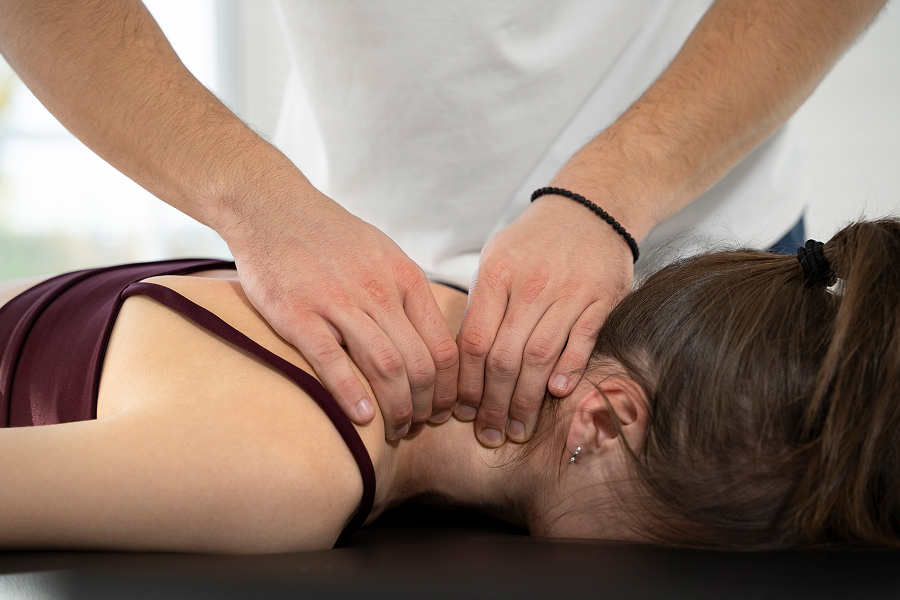
Our Professional Licensing Program (PLP) educates students in the art, science, and business of massage therapy.
Our program and courses are designed to give a comprehensive foundation in the art and science of massage. Classes build on each other from quarter to quarter, structured to take the student from the basics to advanced critical thinking in assessment and treatment of musculo-skeletal injuries.
Designed to be completed in 12 months, this 750-hour experiential learning program is comprised of four 11-week quarters, plus one required 2-day weekend per quarter. Classes are held 3 days per week (Tue/Wed/Thu for Fall start, and Mon/Wed/Fri for Spring start), with each day focused on a single subject.
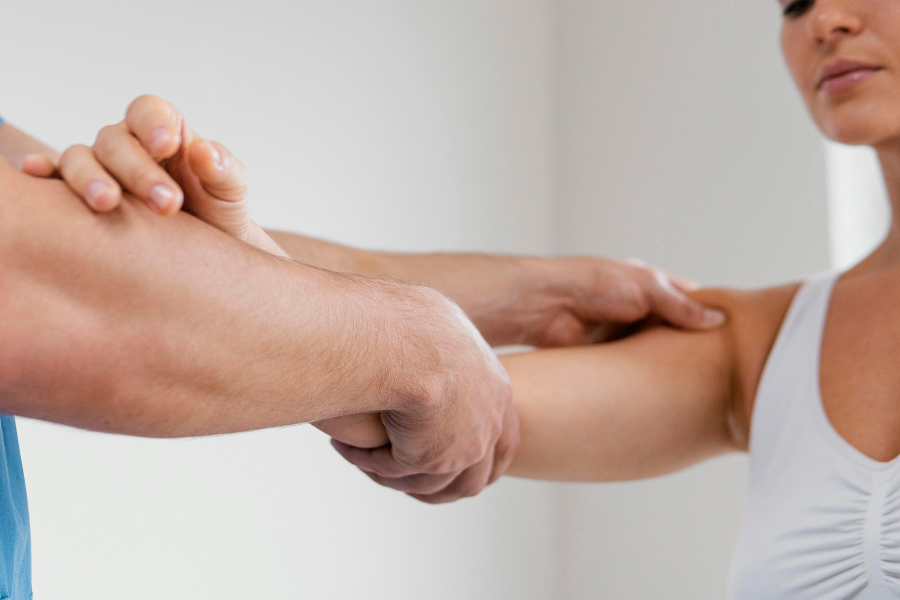
Hours: 5 hrs x 11 classes = 55 hrs total
Prerequisites: None
Overview: A solid foundation in personal and professional communication skills, ethics, and the scope of the massage therapy profession is necessary to building a successful practice. In this class students learn about massage as a profession past and present, and practice essential skills for developing and maintaining rapport. Balancing personal and professional needs and development is a focus here, as students explore self-care, communication, professional ethics, the therapeutic relationship, and building a professional practice.
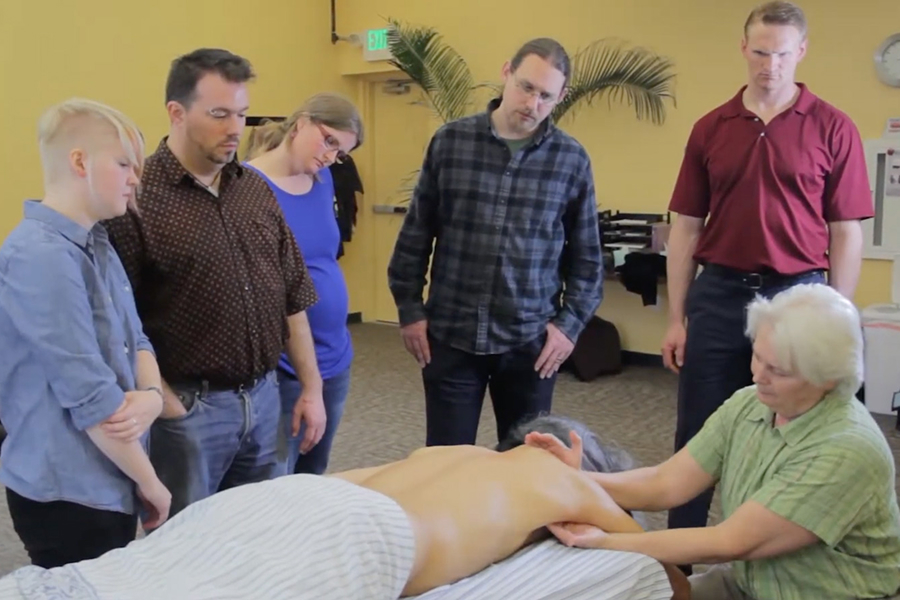
Hours: 5 hrs x 11 classes = 55 hrs total
Prerequisites: None
Overview: Swedish massage is the most common form of therapeutic massage practiced in the US. Its integration of gentle movement, light stretching, and basic strokes provide essential skills and techniques for any professional massage therapist. In this course students learn, practice, and develop their foundational techniques, as well as hygiene, proper draping and bolstering of clients, safe touch protocols, and feedback practices. The principles of proper body alignment and mechanics are emphasized during each classroom demonstration and practice session.
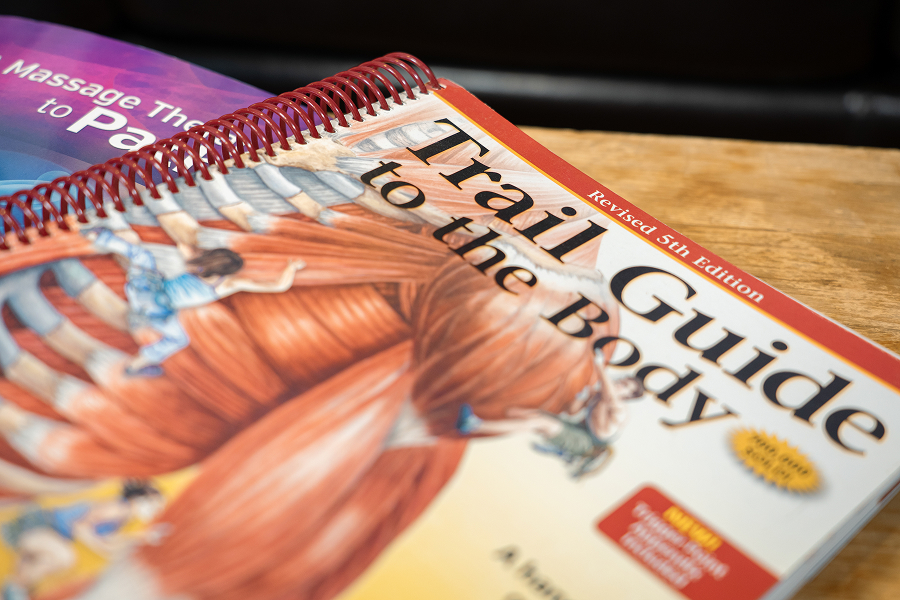
Hours: 5 hrs x 11 classes = 55 hrs total
Prerequisites: None
Overview: The art and practice of therapeutic massage is supported by a foundational understanding of the structures and functions of the human body. In Introduction to the Body, students explore the primary tissues with which massage therapists work, including the structures and functions of the integumentary & musculoskeletal systems. Gentle and accurate palpation is a focus as students practice the identification of major bone landmarks, muscle origins, insertions, shapes, and fiber directions of the knee and ankle.
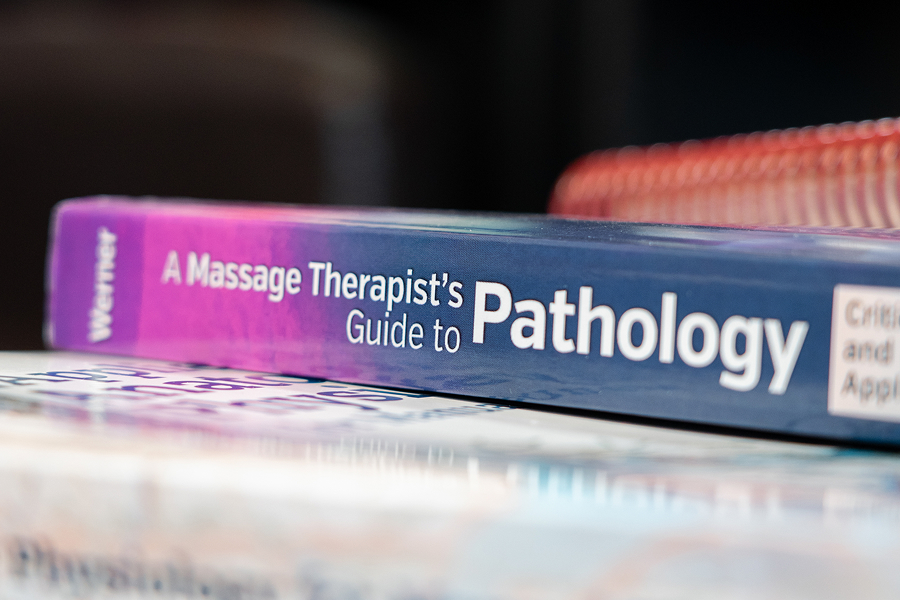
Hours: 5 hrs x 22 classes = 110 hrs total
Prerequisites: Introduction to the Body
Overview: In this A2P2 course students continue their study of the systems of the body, focusing on the specific anatomy of the bones and muscles working together for movement, plus the components and functional contributions of each body system to the whole. The application of this information to the practice of therapeutic massage is emphasized. Students complete their study of palpation and movement focusing on the muscles of hip, upper extremities, trunk and spine. Common pathologies are used to clarify functions of each system, and massage cautions and contraindications are identified to prepare students for the use of more detailed client health histories utilized in the 3rd & 4th quarters.
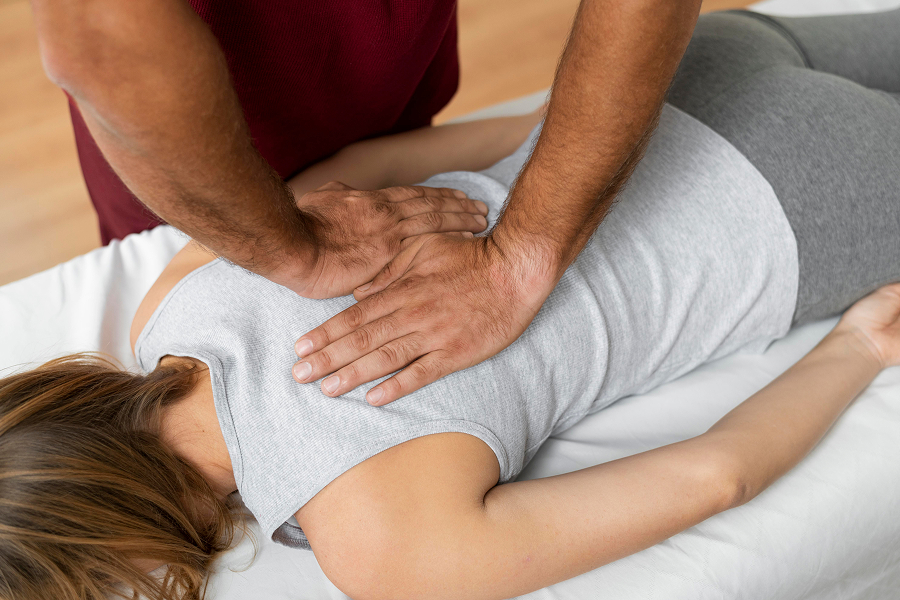
Hours: 5 hrs x 11 classes = 55 hrs total
Prerequisites: Foundations of Therapeutic Massage; Introduction to the Body
Overview: In TM 1 students continue to learn, practice, and develop their skills in Swedish Massage. Once regional demonstrations are completed, the focus shifts to planning and implementing full-body sessions that address a client’s primary area(s) of tension. Benefits and effects of specific strokes, as well as caution areas are reviewed to help students make appropriate therapeutic decisions. Additionally, neuromuscular and myofascial techniques are introduced to provide students with additional techniques to round out their toolbox for relaxation massage. The principles of proper body alignment and mechanics continue to be emphasized during classroom demonstration and practice sessions.
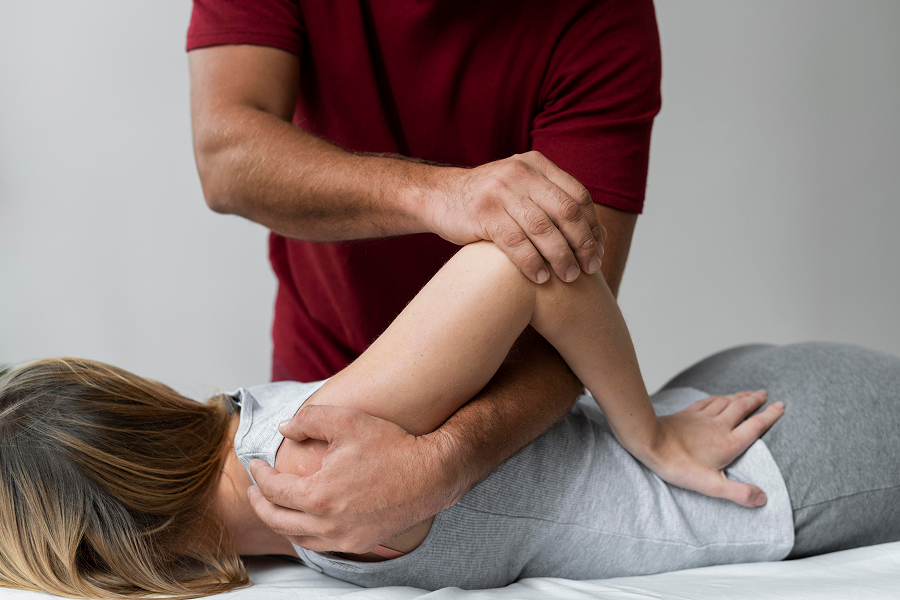
Hours: 5 hrs x 22 classes = 110 hrs total
Prerequisites: A2P2; Therapeutic Massage 1; Ethics and Communication
Overview: The hallmark of client-centered massage is a collaborative process between client and practitioner to meet the client’s identified therapeutic goals. In Outcome Based Massage, students learn a step-by-step clinical reasoning process that includes general and specific assessment, goal setting, session planning and treatment guidelines. Critical thinking skills are practiced, developed and refined as students work to integrate and apply their knowledge of anatomy, physiology, pathology and massage theory and techniques. The physical, emotional and spiritual impact of pain and stress, plus the physiology of healing, is reviewed. Common pathologies are discussed, including their etiology, signs and symptoms, medical interventions, plus indications and contra-indications for the application of manual therapy treatments. Students learn and practice important assessment and massage skills for common musculoskeletal injuries and disorders such as low back strain, neck pain, headaches, nerve compression-tension and chronic pain syndromes.
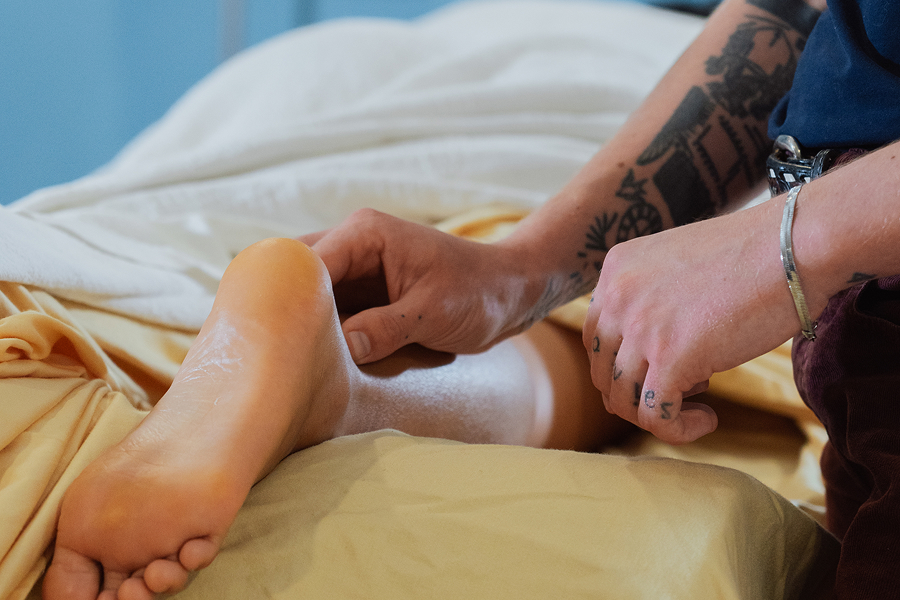
Hours: 5 hrs x 11 classes = 55 hrs total
Prerequisites: Therapeutic Massage 1; A2P2
Overview: In order to address the specific needs of each client, every massage therapist needs a variety of techniques from which they can choose. In TM 2 students add a variety of myofascial and neuromuscular techniques to their Swedish massage skills to create a more robust toolbox of techniques. While the majority of class time is spent on demonstration, practice, and feedback, the theory of each method / technique, including its specific benefits, effects, indications and contraindications is thoroughly discussed. Integration classes support students in developing critical thinking skills as they practice choosing and blending techniques to create a client centered therapeutic massage session that is both specific to regions of concern, and a full body experience. The principles of proper body alignment and mechanics continue to be emphasized.
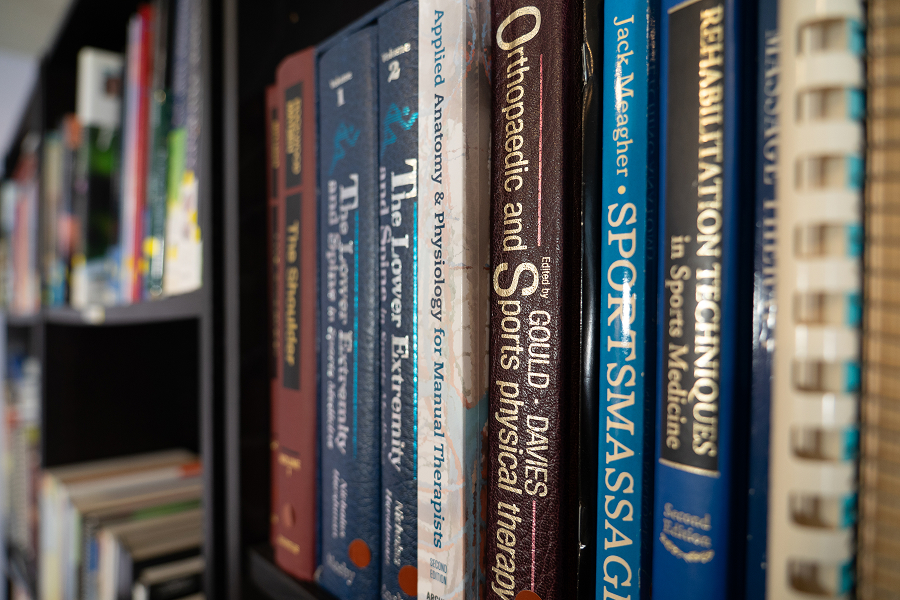
Hours: 5 hrs x 11 classes = 55 hrs total
Prerequisites: Ethics & Communication; Outcome Based Massage
Overview: A successful massage practice requires knowledge and skills in massage and business. In Professional Practice, students complete their study of essential business and practice management issues, including marketing, ethics, bookkeeping and taxes as they envision and develop their personal career and business plans. Adult First Aid, CPR, & AED training is included to ensure that students meet all the requirements for licensure in Washington State. In addition, an introduction to research tools and methods helps students recognize the growing body of knowledge available about massage, and appreciate how this information can enhance their effectiveness as practitioners.
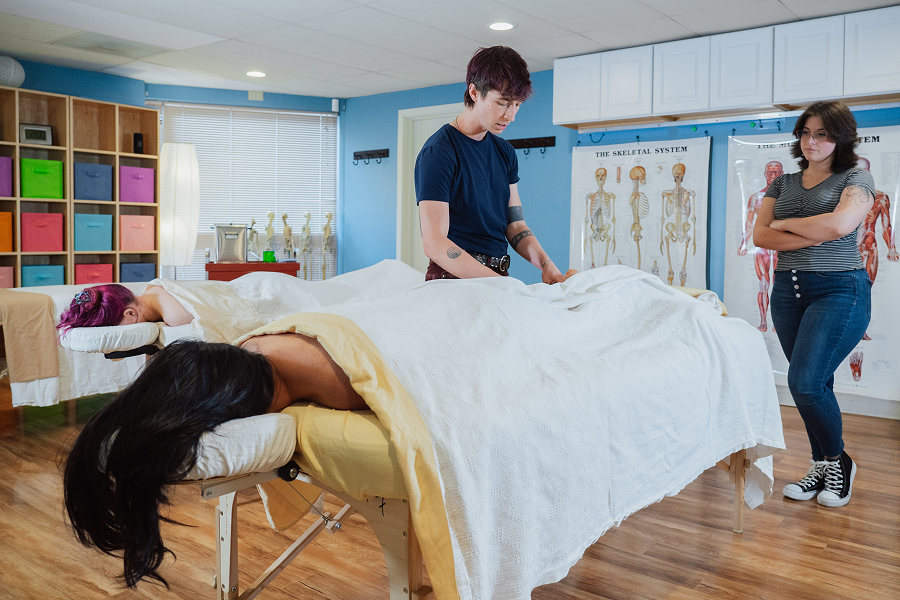
Hours: 5 hrs x 11 classes = 55 hrs total
Prerequisites: Therapeutic Massage 2; Outcome Based Massage
Overview: Student Clinic is a teaching clinic in which students provide massage sessions to members of the general public under the supervision of experienced LMTs. These authentic clinical opportunities help students build their professional communication skills and persona as they prepare to enter professional practice. Additionally, clinics provide students important opportunities to develop their confidence as they practice and demonstrate their skills and knowledge in a comprehensive way in a safe and supervised environment.
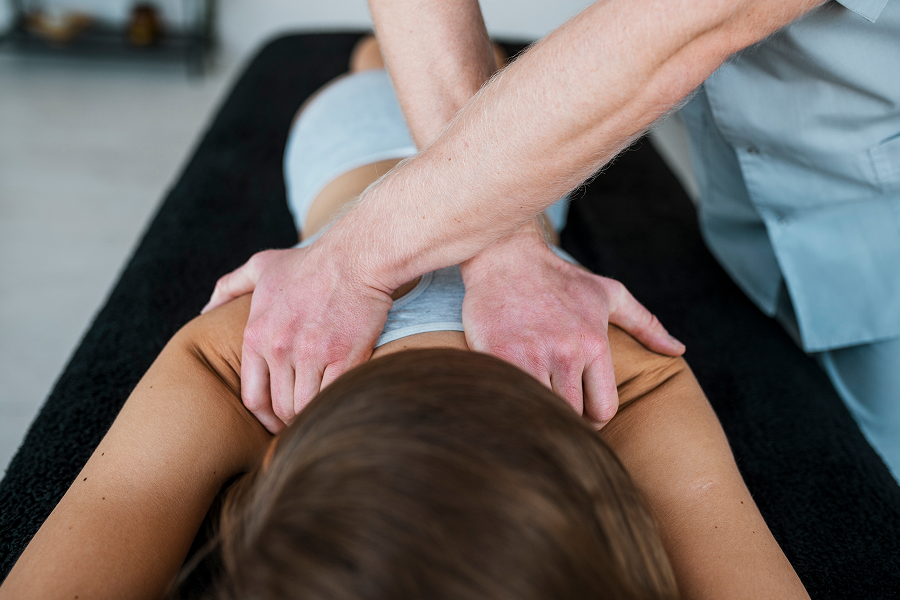
Hours: 5 hrs x 11 classes = 55 hrs total
Prerequisites: Therapeutic Massage 2; Outcome Based Massage
Overview: In TM 3, students add lymphatic techniques and sports massage to their toolbox of skills. While the majority of class time is spent on demonstration, practice, and feedback, theory of each technique including specific benefits, effects, indications and contraindications is thoroughly discussed. During the second half of TM 3, class focus shifts to addressing specific regions of the body. Areas are chosen based on the clinic supervisors’ assessment of student skills during clinic, and the students’ expressed desire for more instruction and practice around specific structures or injuries. This collaborative process for determining class content is designed to support students in developing self-assessment skills and professional mentorship relationships.
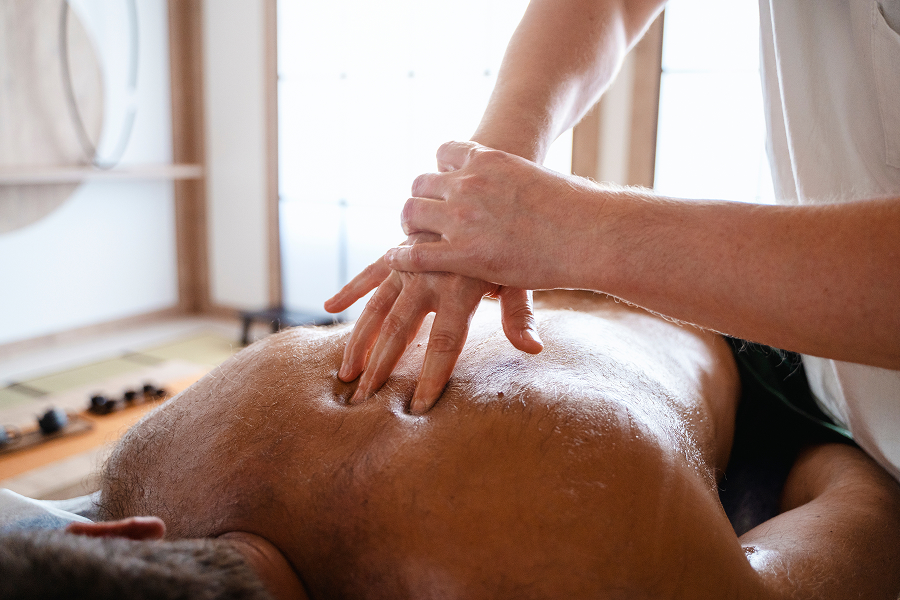
Hours: 7.5 hrs x 8 classes = 60 hrs total
Prerequisites: Concurrent eligibility & enrollment in each quarter of the program
Overview: Manual therapy arts encompass a broad spectrum of forms and styles of massage/bodywork to serve a wide range of client populations. In Therapeutic Alternatives, students explore a variety of modalities and therapeutic practices to expand their experience of alternative health care. The course is conducted over 4 weekends, one per quarter. Quarter 1 includes foundational subject matter with an introduction to energy medicine and movement for self-care. Quarter 2 has students exploring sports massage and expanding their therapeutic tools with hydrotherapy. Quarter 3 has students exploring chair massage, a helpful form for marketing and promotion, and massage for pregnancy and perinatal clients. Finally, in Quarter 4 students dive deeper into structural medicine with Seeing Fascial Chains, and experience a zonal therapy of either Shiatsu or Reflexology. While each day-long class is comprised predominantly of demonstration, practice, and feedback, the theory of each technique, its specific benefits, effects, indications and contraindications is thoroughly outlined and discussed.
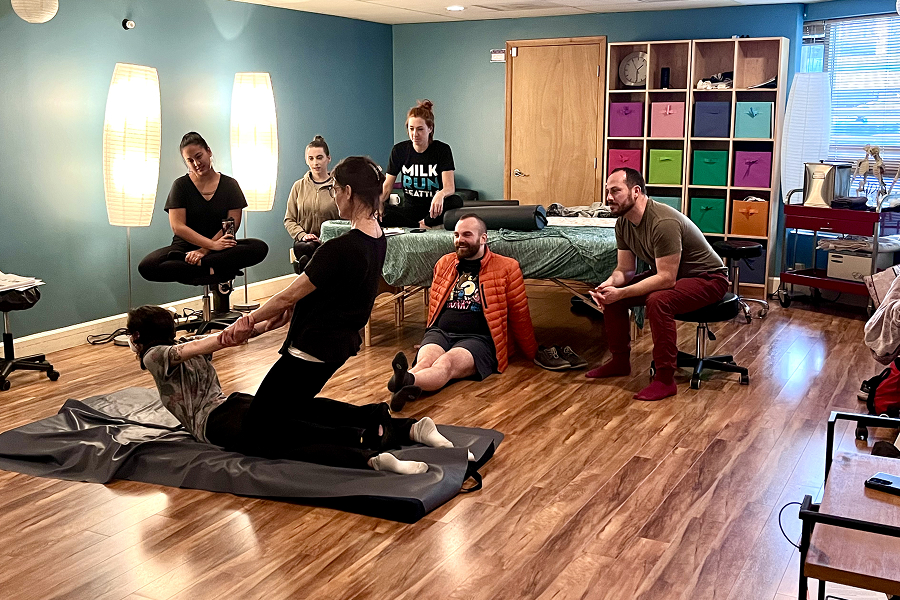
Hours: 30 hrs total
Prerequisites: Concurrent enrollment in PLP; Some classes may have other specific prerequisites
Overview: The successful practice of massage and bodywork requires an integral link between personal and professional development and growth. Through electives, students can seek this enrichment and experience from a diverse spectrum of classes choosing classes based on their needs and values for personal growth, interest in different styles of alternative healthcare, or professional curiosity and interests. Subject matter may address self-care and personal growth, special populations, business and marketing, research, or alternative forms of therapeutic massage and somatic practices. Elective classes are 2.5 hour, 5 hour, or 7.5 hours in length, and scheduled throughout the year on specific weekdays and weekend dates to offer students maximum flexibility in selecting and scheduling these classes. Students may select any combination of the elective class offerings over the length of the Program, to equal the required 30 hours total. Specific class offerings will change quarter to quarter.
Discoverypoint is proud to be one of the few board-approved transfer programs in Washington State, allowing us to accept transfers from other academic and licensing programs. We can also provide a pathway for licensure in Washington for LMTs who have been licensed or trained in other states.
Students and LMTs applying as transfers to our Professional Massage Program must meet all of our admissions requirements and provide a transcript from their previous program(s). Credit may be awarded for comparable courses on a case-by-case basis for students who demonstrate competence in the subject matter.
All graduates of our transfer program must meet the standards of excellence that we expect of our own graduates; standards which exceed the minimum requirements set forth by Washington State in some subject areas. This may mean passing exams, performing practical demonstrations, tutoring, and/or taking classes in certain subjects in order to graduate. To learn more, send us an inquiry with details of your situation.
Discoverypoint School of Massage offers Continuing Education classes for Massage Therapists and other allied healthcare providers, taught by Discoverypoint core faculty and guest instructors.
Licensed professionals who satisfy the requirements of a class will earn a “certificate of completion” for the hours attended, which may count toward Continuing Education credits (per WAC 246-830-475).
We also offer periodic CPR / First Aid courses, taught by instructors certified by the American Red Cross. These typically consist of 2 hours of online class content + 2.5 hours of in-person instruction, and can be used for initial certification or renewal of an existing certification.
CE classes are intended for Licensed Massage Therapists (and potentially other healthcare providers, per class offering). These may be introductory or advanced, a stand-alone class or part of a larger program. Subject matter and course objectives will vary; see class descriptions for more information, including what to bring, what to expect, and any prerequisites needed. Join our experienced instructors and enthusiastic colleagues as you explore a new modality, deepen your existing knowledge, or become informed of the latest laws or trends in research.
Elective + CE classes act as a bridge between massage school students and professional LMTs. Our currently-enrolled students will use these hours for credit toward their diploma, while other members of the LMT community may enroll and earn CE credits for these classes.
These short classes provide an excellent pathway for LMTs to earn CE credits toward license renewal, enjoy a quick introduction to a new modality, or get a feel for an instructor’s teaching style before committing to an entire program.
Elective+ CE classes are typically short — 5 to 10 hours — and are often taught by instructors who offer similar CE classes, training, and certification programs outside of our school. These classes provide introductory skills for: working with a particular population, skills in a new modality or form, or an approach to life-long self-care. These short classes provide an excellent pathway for LMTs to earn CE credits toward license renewal, enjoy a quick introduction to a new modality, or get a feel for an instructor’s teaching style before committing to an entire program.